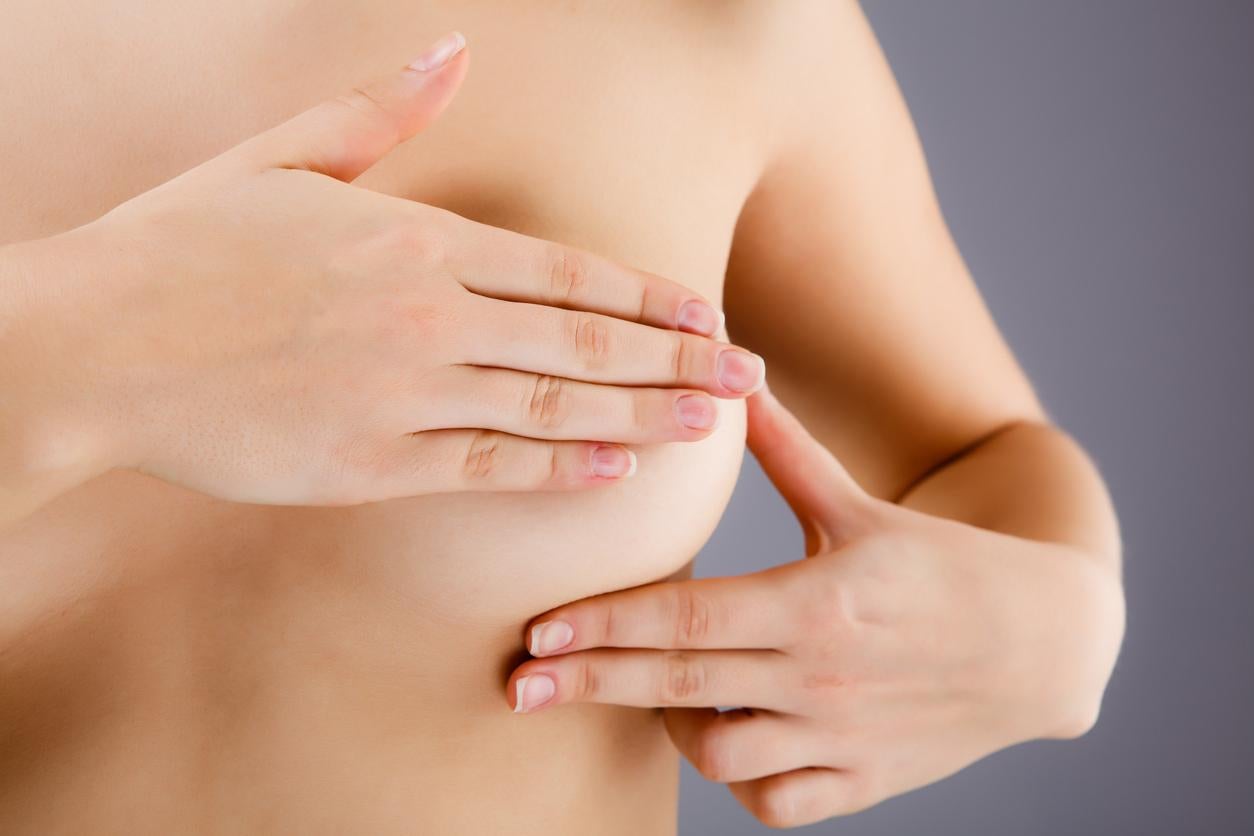Women not checking breasts for cancer due to body image concerns, study finds
A third admitted to rarely or never engaging in self-examination

Women who are less happy with the appearance of their breasts are less likely to check for signs of cancer, new research finds.
The findings also show that women who are dissatisfied with the size of their breasts are more likely to delay seeing their doctor if they do detect a change, than those who feel confident about their bodies.
Published in the journal Body Image, the study of 384 British women revealed that the majority of participants were unhappy with the appearance of their breasts in some way.
While 31 per cent wanted smaller breasts, 44 per cent wanted larger breasts and a third of women (33 per cent) admitted they rarely or never engage in breast self-examination.
Worryingly, if they were to detect a change, one in 10 (8 per cent) admitted they would either delay seeing a doctor for as long as possible, or avoid it completely (2 per cent).
“Our findings suggest that greater breast size dissatisfaction is significantly associated with less frequent breast self-examination, lower confidence in detecting breast change, and greater delay in seeing a doctor following breast change,” said study author, Professor Viren Swami of Anglia Ruskin University.
Mastectomy: Stand Up To Cancer launches powerful photo campaign
Show all 13“For women who are dissatisfied with their breast size, having to inspect their breasts may be experienced as a threat to their body image and so they may engage in avoidance behaviours.
“Breast size dissatisfaction may also activate negative self-conscious emotions, such as shame and embarrassment, that result in avoiding breast self-examination.”
Instead, Prof Swami says that promoting greater breast size satisfaction and breast awareness could help women view their breasts in more functional terms – such as their ability to produce milk for babies – rather than purely aesthetic terms, and in turn empower women to regularly self-check.
“It is also important for healthcare practitioners to be mindful of the impact that dissatisfaction with one’s breasts may have on self-examination behaviours and outcomes,” said Prof Swami.
Subscribe to Independent Premium to bookmark this article
Want to bookmark your favourite articles and stories to read or reference later? Start your Independent Premium subscription today.

Join our commenting forum
Join thought-provoking conversations, follow other Independent readers and see their replies